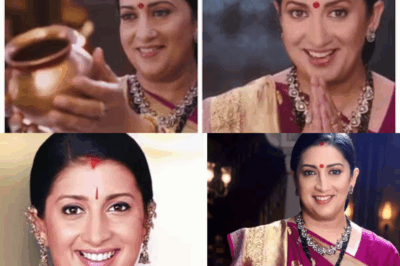Amaal Mallik on Bollywood’s Dark Side: Reflecting on Sushant Singh Rajput and Kartik Aaryan
In a candid conversation, renowned music composer Amaal Mallik opened up about the darker aspects of Bollywood, shedding light on the pressures and challenges faced by those within the industry. His insights come in the wake of significant events, including the tragic demise of actor Sushant Singh Rajput and the ongoing struggles of rising star Kartik Aaryan. Mallik’s reflections paint a poignant picture of an industry that often grapples with the dichotomy of fame and mental health, revealing the emotional toll it can take on its artists.

The Illusion of Stardom
Amaal begins by addressing the stark contrast between the glamorous facade of Bollywood and the harsh realities that lie beneath. “Today, the shine of Bollywood seems to be missing,” he states, emphasizing how the public has begun to understand the industry’s darker truths. He believes there is an emotional disconnect between the stars and their audience, as many fans remain unaware of the pressures that come with fame.
“People think our stars live in a different world, but the truth is far more complex,” Mallik explains. The industry, while often depicted as a realm of glitz and glamour, is fraught with challenges that can lead to devastating consequences, as seen in the case of Sushant Singh Rajput.
The Tragedy of Sushant Singh Rajput
Sushant’s untimely death in June 2020 sent shockwaves throughout the nation and raised critical questions about mental health in the entertainment industry. Mallik poignantly remarks, “The industry has done something to his mind and soul. It demoralized him.” He reflects on the collective blame placed on the circumstances surrounding Sushant’s death—whether it was murder or suicide—highlighting that the loss of such a talented individual is a tragedy in itself.
The aftermath of Sushant’s passing revealed a significant shift in public sentiment towards Bollywood. “The common man’s perception of the industry changed dramatically,” Mallik notes. The once-glorified image of stars began to tarnish, leading to a wave of criticism. The harsh reality of the industry came to light, with many people expressing their disillusionment with the glamorous world of cinema.
The Impact on Industry Perception
Mallik points out that never before has the industry faced such scrutiny. “Public sentiment against Bollywood has shifted,” he states, noting how people began to label the industry as a “bad place.” Friends of Mallik, who have no ties to Bollywood, echoed this sentiment, stating, “Your industry is a very bad place.” This growing awareness of the industry’s darker side has made it increasingly difficult for stars to maintain their public image.
The fallout from Sushant’s death has had lasting effects on the industry, with many actors feeling the pressure to prove their worth. Mallik observes, “The death of Sushant Singh Rajput stripped many of their glamour, leaving them vulnerable.” This vulnerability has led to a sense of fear among actors, as they navigate the treacherous waters of fame and public perception.

Kartik Aaryan: A Modern-Day Struggle
Mallik draws parallels between Sushant’s experience and that of Kartik Aaryan, another talented actor who has faced his own set of challenges in the industry. “Kartik has also had to navigate these issues,” he explains. Despite his success, Aaryan has encountered obstacles that reflect the ongoing struggles within Bollywood.
“Kartik tries to keep smiling and dancing through it all, but behind that smile, there’s a lot of pressure,” Mallik admits. He acknowledges the support Aaryan receives from his family, which plays a crucial role in helping him cope with the challenges of the industry. However, the constant threat of being undermined by others remains ever-present.
Mallik highlights the power dynamics at play within Bollywood, where established producers and actors often exert significant influence. “There are always people trying to pull you down,” he warns, underscoring the cutthroat nature of the industry. The pressure to conform to certain standards can be overwhelming, leading many to question their place in the world of cinema.
The Loss of Belief in Cinema
As the conversation unfolds, Mallik reflects on how the tragic events surrounding Sushant have led to a broader loss of faith in the magic of cinema. “Stars like Rajesh Khanna, Amitabh Bachchan, Shahrukh Khan, and Salman Khan have stopped believing only in the magic of cinema,” he states. The disillusionment that has taken hold of the industry is palpable, as audiences have become increasingly critical of the content being produced.
The impact of Sushant’s death has left a lasting mark on the industry’s reputation, with many viewers now demanding relatable narratives and authentic storytelling. “People want to see genuine stories,” Mallik emphasizes, noting that the audience’s power has shifted significantly. The days of blindly accepting whatever Bollywood offers are over; viewers are now discerning and vocal about their preferences.
The Shift in Audience Sentiment
Mallik observes that the audience’s sentiment has evolved dramatically since the events surrounding Sushant’s passing. “Now, if a film doesn’t resonate with them, they’ll simply say, ‘We don’t want to watch it,’” he explains. This newfound assertiveness among viewers is reshaping the landscape of Bollywood, forcing filmmakers to rethink their approach to storytelling.
The demand for relatable content has become more pronounced, with audiences seeking narratives that reflect their own experiences. Mallik believes that this shift is essential for the industry’s survival. “We need to focus on relatable stories, relatable music, and simplicity in storytelling,” he asserts.

The Role of Newcomers and Established Stars
As the industry grapples with these changes, Mallik acknowledges the challenges faced by both newcomers and established stars. He notes that while new actors may have the advantage of modern marketing techniques, they still face immense pressure to prove themselves. “Old actors are hardworking and have a different approach,” he states, contrasting the experiences of veterans with those of newcomers.
The landscape of Bollywood has become increasingly competitive, with new talent constantly emerging. However, Mallik warns that laziness has no place in the industry anymore. “You need to showcase your product effectively,” he insists. In an age dominated by social media, artists must adapt to the changing dynamics and find innovative ways to connect with their audience.
The Future of Bollywood: A Call for Authenticity
Amaal Mallik’s reflections serve as a wake-up call for the industry. He believes that Bollywood must prioritize authenticity and relatability to regain the trust of its audience. “We can make a comeback, but it won’t happen easily,” he warns. The path forward requires a collective effort from all stakeholders in the industry.
The need for genuine storytelling and relatable characters is more critical than ever. Mallik emphasizes that filmmakers must pay attention to every script, ensuring that the narratives resonate with the audience. “We can slowly rebuild the magic of cinema,” he concludes, expressing hope for a brighter future for Bollywood.
Conclusion: A Journey Towards Healing
As Amaal Mallik shares his thoughts on the darker side of Bollywood, it becomes evident that the industry is at a crossroads. The tragic loss of Sushant Singh Rajput has sparked important conversations about mental health, the pressures of fame, and the need for authenticity in storytelling.
Mallik’s insights remind us that behind the glitz and glamour of Bollywood lies a complex world filled with challenges. The journey towards healing and rebuilding trust with the audience is a collective responsibility that requires introspection, empathy, and a commitment to meaningful storytelling. As the industry navigates these turbulent waters, the hope for a brighter, more authentic future remains alive.
News
Salman Khan’s Playful Reaction: When Vicky Kaushal Casually Proposed to Katrina Kaif
Salman Khan’s Playful Reaction: When Vicky Kaushal Casually Proposed to Katrina Kaif Bollywood has always been a treasure trove of…
Krushna Abhishek Opens Up About ‘Accidental’ Marriage, Family Ties, and Govinda Rift on The Kapil Sharma Show
Krushna Abhishek Opens Up About ‘Accidental’ Marriage, Family Ties, and Govinda Rift on The Kapil Sharma Show Renowned comedian and…
Smriti Irani’s Return as Tulsi in “Kyunki Saas Bhi Kabhi Bahu Thi 2” Sends Social Media Into a Frenzy
Smriti Irani’s Return as Tulsi in “Kyunki Saas Bhi Kabhi Bahu Thi 2” Sends Social Media Into a Frenzy After…
Nora Fatehi Spotted in Tears at Airport; Bodyguard Labels Fan ‘Chhapri’ in Viral Incident
Nora Fatehi Spotted in Tears at Airport; Bodyguard Labels Fan ‘Chhapri’ in Viral Incident Bollywood sensation Nora Fatehi, known for…
What Did Kiran Singh Say to Khesari Lal Yadav About Roshan Rohi’s Bail? Bhojpuri Industry Faces Backlash
What Did Kiran Singh Say to Khesari Lal Yadav About Roshan Rohi’s Bail? Bhojpuri Industry Faces Backlash The Bhojpuri entertainment…
Kataria Shares Honest Take on Ajju0008 and Pratibha’s Divorce Drama: Calls for Privacy and Maturity
Kataria Shares Honest Take on Ajju0008 and Pratibha’s Divorce Drama: Calls for Privacy and Maturity The Indian influencer and gaming…
End of content
No more pages to load












